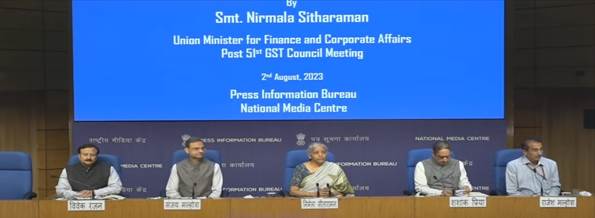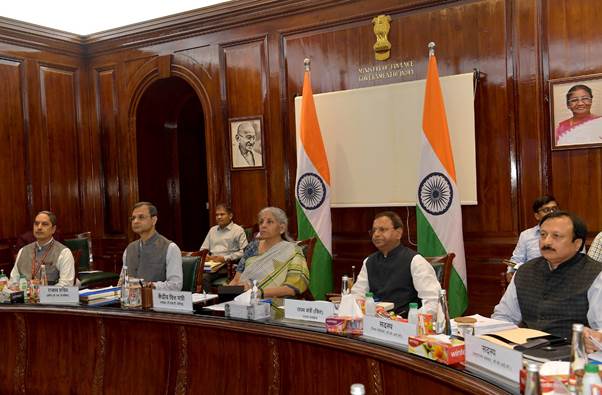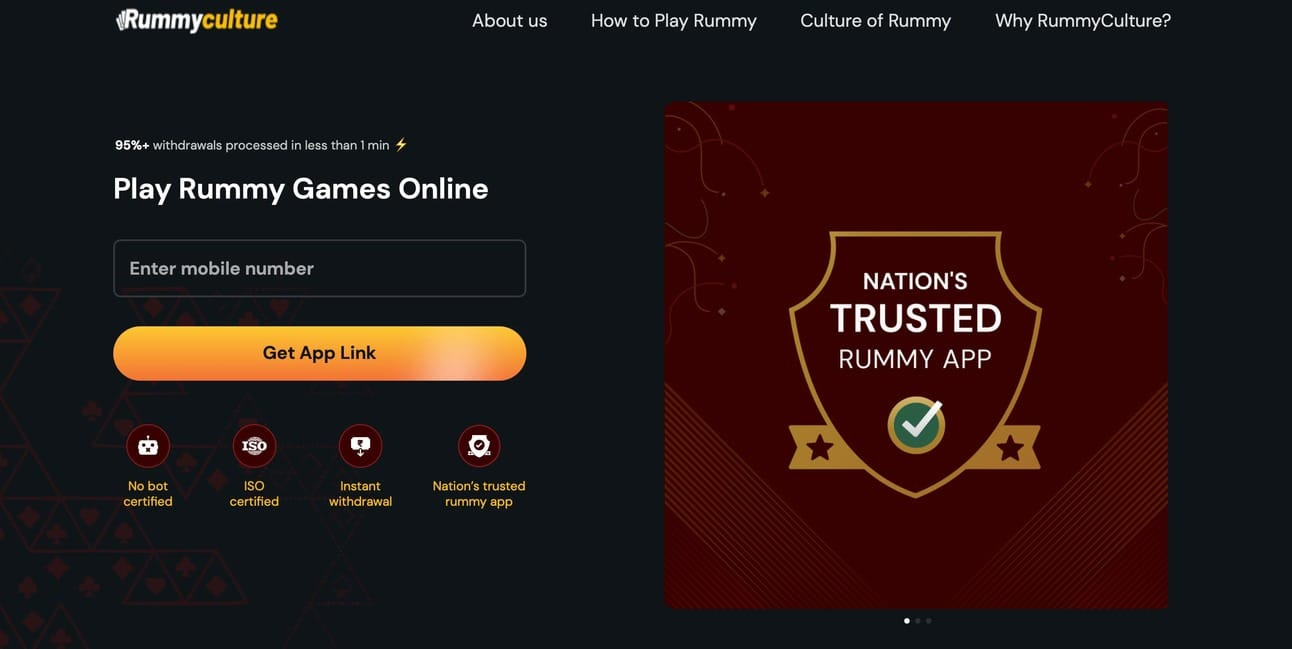Is real-money gaming gambling?
This question is at the heart of all the hullabaloo over the tax evasion notices worth thousands of crores sent to real-money gaming companies.
Good evening!
Welcome to The Playbook, a weekly newsletter on the business of sports and gaming. If someone shared this newsletter with you or if you’ve found the online version, please hit the subscribe button below — it’s free! You can unsubscribe anytime.
The ICC Men’s World Cup is here! Are you excited? Who’s your money on? Metaphorical money, of course, because this newsletter does not promote betting and gambling. 🙃
I’m excited enough that I caved and went back on my pledge to not even bother buying a ticket after the farce we’ve seen over the last couple of months. ICYMI, I wrote about the ticketing chaos here. I didn’t, of course, manage to get a ticket for an India match, so I got the next best thing: I’m going to see Babar Azam, Shaheen Afridi, and Rashid Khan live in Chennai! Pakistan versus Afghanistan. Should be a cracker! It was too good an opportunity to miss. After all, considering the unpredictable nature of the politics involved, who knows if Babar and Co. will ever get to play in India again.
Speaking of the World Cup, I saw a post on X yesterday that made me chuckle. Here it is:

| |||
jeez! surely they dont have an official partnership of any kind with the ICC CWC (or do they?) | |||
 | |||
Oct 5, 2023 | |||
 | |||
0 Likes 0 Retweets 1 Replies |
It’s a full-page ad in Dainik Bhaskar, one of the largest Hindi newspapers in India, with a readership of 66 million, according to its website. 11exch, as you might have guessed, is an online betting and gambling platform. The irony of a platform openly advertising services that are illegal in most parts of India in a leading daily, even as the so-far legal real-money gaming platforms are involved in a standoff with the government over taxation, is just too tasty.
Unpacking the online gaming GST saga

Photo credit: Michał Parzuchowski/Unsplash
If you’ve been following the news over the last couple of weeks, you can’t have missed stories about India’s real-money gaming (RMG) industry. The media has been carrying stories almost on a daily basis about how the industry is basically… pardon my French… screwed.
India’s Goods and Services Tax (GST) authorities have sent notices to several online RMG companies over tax dues worth thousands of crores. The Economic Times said the total tax claim from the entire industry is ~₹55,000 crore ($6.6 billion), while Mint reported that it could touch ₹1.5 lakh crore ($18 billion) in the coming weeks. Business Standard reported that ~80 companies are likely to receive such notices.
India’s largest fantasy sports platform Dream11 has received “possibly the largest indirect tax notice served in the country”, worth ₹25,000 crore ($3 billion). Dream11 has already moved the Bombay High Court against the notice. Games 24x7, which operates RummyCircle and My11Circle, has been asked to cough up ₹20,000 crore ($2.4 billion). Head Digital Works, which runs A23 Rummy and A23 Games, has been asked to pay ₹5,000 crore ($600 million).
Various reports quoting anonymous industry executives have said that the Directorate General of GST Intelligence (DGGI) is filing “retrospective” tax claims based on the Indian government’s new GST rules that came into effect on October 1. ICYMI, I had written an explainer on the new rules.
Essentially, real-money gaming companies have to pay 28% GST each time a user deposits money into their wallets. The companies were earlier paying 18% GST on the platform fee or commission they charge to organise each contest. To clear up the confusion, the government in August amended the Central Goods and Services Tax (CGST) Act, 2017, to state that all RMG companies, whether they’re offering games of skill or chance, have to pay 28% GST on the deposit value from October 1. The government also said that this had always been the case, and the new amendment is only clarifying it.

| |||
51st #GSTCouncil met under the Chairpersonship of Union Minister @nsitharaman via video conferencing in New Delhi 👉🏻 GST Council recommends certain amendments in CGST Act 2017 and IGST Act 2017, including amendment in Schedule III of CGST Act, 2017, to provide clarity on… twitter.com/i/web/status/1… | |||
  | |||
Aug 2, 2023 | |||
 | |||
117 Likes 29 Retweets 4 Replies |
And then, as the RMG industry prepared to incorporate the new tax regime, the government late last month began hitting companies with GST-evasion notices. The industry has since gone on a media overdrive, with various anonymous sources telling publications how the “retrospective” tax amount being sought by the government was “insurmountable” and could potentially lead to companies going bankrupt.
Last week, at a roundtable discussion on the changing policy landscape in the online gaming industry organised by independent media platform Policy Circle, Games24x7’s chief legal officer Sameer Chugh said that the taxation issues are endangering investment worth $2.5 billion, along with 10,000 direct and 100,000+ indirect jobs. He also said that the total tax claim sought by the recent notices—₹2 lakh crore ($24 billion) by his calculation—is 10x the industry’s overall revenue in the last seven to eight years.
Another point made at the roundtable, whose guests were largely lawyers, policymakers, and other executives associated with the gaming industry, was: how can an amendment be a clarification?
Whether it was the roundtable or all the media reports that I’ve read over the last two weeks on this topic, we’ve only heard one side of the story. So far, no one from the government’s side has put forward its arguments since the tax notices were sent. That could change on October 7, when the GST Council holds its next meeting. It’s usually followed by a press conference.
However, this matter is unlikely to get any real closure until the Supreme Court announces its verdict in the ₹21,000 crore GST evasion case against Gameskraft, whose most popular offering is a game called RummyCulture. The next hearing of the case is on October 10, and industry executives claim the final verdict could determine the fate of all RMG companies hit with similar GST evasion notices.
The case
In September 2022, the DGGI issued a tax-evasion notice to Gameskraft and asked it to deposit ₹21,000 crore, the biggest claim in the history of indirect taxation in India at the time. The DGGI alleged that Gameskraft is involved in betting/gambling activities, which are “actionable claims” under the CGST Act and, thereby, liable for 28% GST. Gameskraft, like all its skill-based RMG peers, had been paying 18% GST on its platform fee.

An actionable claim is essentially a claim to an unsecured debt. According to the CGST Act, transactions that are actionable claims are not taxable, except for lottery, betting, and gambling activities. With the latest amendment to the CGST Act, the government has added horse racing and online gaming (with no distinction between games of skill and chance) to the list of taxable actionable claims. But for the purposes of the Gameskraft case, online gaming wasn’t part of the original list.
Gameskraft’s arguments
Gameskraft approached the Karnataka High Court challenging the notice. It argued that rummy, whether played offline or online, has been classified as a game of skill by various courts, including the Supreme Court. It said that it was not supplying an actionable claim since it “does not have any right or claim over the prize pool and merely holds it in a fiduciary capacity”. The prize pool is disbursed to the winning players once the game is over after deducting the platform fee.
Gameskraft also said that the DGGI had taken the entire ‘buy-in’ amount of over ₹70,000 crore as its revenue, which was “entirely misleading and a malicious attempt… to mischievously and maliciously inflate the figure”.
DGGI’s arguments
The GST body, however, argued that a platform fee or service fee “must be charged purely for meeting expenses and must apply uniformly across the board to all players”. But the platform fee that Gameskraft was collecting varied from table to table depending on the total stake amount.
The DGGI’s main argument, though, was that Gameskraft’s rummy game isn’t a game of skill because it allows players “to place stakes and bet on the outcome” of the games. And this outcome is unknown until the game is over.
The GST body argued that players on Gameskraft’s platform carry out two transactions: the first transaction is the game of rummy, which the DGGI agrees is a game of skill. But there’s a second transaction where players place stakes on the unknown outcome of games of rummy. The second transaction unequivocally qualifies as an act of betting and gambling, the DGGI argued.
It also said:
“Further, the Petitioner’s platform does not record the skill level of a player and does not disclose the skill level of a particular player to all the players seated at a table… Therefore, a player of rummy on the Petitioner’s platform has no choice to make a conscious decision as to against whom he can compete. Any common man can today sign up on the app and start playing the game on the Petitioner’s platform. Therefore, when skill is not the qualifying criteria and placing stakes by a player is the only criteria to enter a table on Petitioner’s platform, the success of the game principally depends on chance and not skill…”
The DGGI added that even if you assume RummyCulture is a game of skill, playing it with stakes and making profits from such stakes would still be betting. “A game of skill played for stakes would still amount to betting,” it argued. It referred to several previous court cases involving rummy, video games, horse racing, and lotteries to back its arguments.
Karnataka HC’s analysis
The High Court did not buy DGGI’s argument that someone playing a game of skill for stakes is forecasting the outcome of the game and is, therefore, gambling.
“...a player who is involved in a game of skill does not forecast victory but plays in the confidence that he will win...When the outcome of a game is dependent substantially or preponderantly on skill, staking on such game does not amount to betting or gambling.
The game of rummy played with stakes is played between players on the basis of the assessment of their own skill. Therefore, while playing for stakes, the player makes a value judgment on his/her skill [sic]. The outcome of the game is determined predominantly by the skill of the players.”
It further noted:
Rummy, whether played with stakes or not, isn’t gambling. And there’s no difference between offline and online rummy—both are “substantially and preponderantly games of skill and not of chance”.
Other online games that are also substantially and preponderantly games of skill are also not gambling.
The section in the CGST Act that takes actionable claims outside the purview of the supply of goods or services would clearly apply to games of skill. So, essentially, Gameskraft’s rummy game is not an actionable claim and, therefore, can’t be taxed at 28%. Only games of chance such as lottery, betting, and gambling would be taxable.
This particular paragraph in the court’s concluding statements was quite scathing:
“…it is significant to state that a perusal of the impugned show cause notice as well as contentions and submissions of the respondents will clearly indicate that the same are an outcome of a vain and futile attempt on the part of the respondents to cherry pick stray sentences from the judgments of various Courts including the Apex Court, this Court and other High Courts and try to build up a non-existent case out of nothing which clearly amounts to splitting hairs and clutching at straws which cannot be countenanced and is impermissible in law.”
The Karnataka High Court quashed the DGGI’s show-cause notice to Gameskraft, calling it “illegal, arbitrary and without jurisdiction or authority of law”.
But it’s not over yet.
All eyes on the Supreme Court
The DGGI approached the Supreme Court, which on September 6 stayed the Karnataka High Court’s judgement. The GST body has particularly questioned the paragraph quoted above about cherry-picking stray sentences from other judgements to build a non-existent case out of nothing. It also drew the Supreme Court’s attention to its own decision in a recent case: Skill Lotto Solutions vs Union of India.
Skill Lotto Solutions, an online lottery platform, challenged the constitutional validity of two notifications issued by the states of Kerala and West Bengal that banned online lotteries. The company argued that online lotteries are different from traditional lotteries in that they’re based on skill, rather than chance.
The respondent, the Union of India, argued that online lotteries were a form of gambling that could have harmful effects on society. It also said that the government had the power to regulate such activities.
The Supreme Court sided with the government, ruling that online lotteries are a form of gambling and can’t be protected under Article 19(1)(g) of the Constitution, which guarantees the right to practice any occupation, trade or business. The ruling upheld the power of the government to regulate online gambling in the interest of the public.
But for this ruling to apply in Gameskraft’s case, the government will have to prove that online rummy played for stakes is gambling and a taxable actionable claim. It’ll have to prove that there is indeed a “second transaction” in Gameskraft’s rummy game that involves placing stakes on unknown outcomes, amounting to gambling.
It’s a fascinating debate. I had a long think about it and remembered the early days of social media when I used to play an online poker game on Facebook. The game provided new users with complimentary chips to begin with. I remember being quite addicted to it. But while the game offered users the option to buy more chips using real money so that you can keep playing if you lost all your complimentary chips or enter contests with higher stakes, I never did it. Because, even though poker is a game of skill, I did not want to ‘gamble’ my hard-earned money on it. This is the same reason why I never play paid fantasy sports games, which are also games of skill.
But if you are a good poker or rummy player and are confident enough in your skills to stake some money on it, does it amount to betting/gambling? Especially when it’s played online, where you don’t really know who you are up against. That’s what the Supreme Court has to decide.
Do you think playing games of skill with stakes amounts to gambling?
The next important question is: whichever way the Supreme Court rules, what impact will it have on the RMG industry? Will a ruling on Gameskraft’s rummy game decide the fate of all RMG companies with respect to their tax dues and legality?
Technically, it shouldn’t. Each platform and its various games need to be examined independently to determine whether there is a preponderance of skill or not. Most RMG companies offer multiple games. Mobile Premier League, for instance, offers fantasy sports (cricket, football, and basketball), card games (rummy, poker, and a skill-based version of teen patti), and casual games (snakes and ladders, ludo, carrom). If the Supreme Court decides that RummyCulture is gambling, it doesn’t mean all real-money games are gambling. And vice versa.
This is especially true in the case of fantasy sports because companies often experiment with various formats. I’ve seen games where players have to make virtual cricket teams comprising just three to five players instead of the standard 11. Each game also has its own points-scoring system, which impacts the result. Indian courts have only ruled that Dream11’s format of cricket fantasy is a game of skill. It doesn’t, or it shouldn’t, mean that all fantasy sports games have a preponderance of skill.
Whichever way the Supreme Court rules, expect many more court cases in the near future as India’s legal and taxation landscape for online gaming evolves.
⚡️Quick Singles
⚽️🏆🌍 The 2030 Fifa World Cup will be played across three continents. Yep, you read that right. Fifa has awarded hosting rights to Spain, Portugal, Morocco, Uruguay, Argentina, and Paraguay. The three South American nations will host the opening three games to mark the centenary of the Fifa World Cup, whose first edition was held in Uruguay in 1930. Then, the tournament will move to Europe and Africa (Climate change? What climate change?). The World Cup has never been played in more than one continent before. By covering three continents in one edition, Fifa, which follows a rotational policy, has paved the way for Saudi Arabia to host the 2034 edition. Sportswashing ftw.
⚽️🎮 Speaking of Fifa, it turns out Electronic Arts can do just fine without the brand name. The American gaming publisher’s decision to cut ties with Fifa after 30 years and rebrand one of the world’s most popular video game series seems to have paid off. The company said that 6.8 million people had paid for pre-release access to EA Sports FC 24, a 25% jump compared to last year’s Fifa 23. Apart from the name, nothing much has changed since EA has separate licensing deals to ensure the game will have 700 teams and 19,000 players across more than 30 leagues. Fifa was supposed to launch its own game, but no details have been released yet.
🏏🏆📺 Disney Star is likely to earn ₹2,000 crore ($240 million) in advertising revenue from the ICC World Cup, with an even split between television and streaming. A 10-second advertising slot during matches is going for ₹30 lakh ($36,000), a 40% jump compared with the 2019 edition, according to Bloomberg. Disney has signed up at least 21 marquee advertisers, including PhonePe and Mahindra & Mahindra, who are paying as much as ₹150 crore ($18 million) each, per Business Standard. Coca-Cola, Google Pay, and Hindustan Unilever are expected to be the other heavy spenders, along with the ICC’s official partners like Saudi Aramco, Emirates, and Nissan. Note the absence of edtech and online gaming companies, except ICC partner Dream11.
How did you like this edition?
If you enjoyed reading The Playbook, please share it with your friends, family, and colleagues. Please also subscribe to it (for free) if you haven’t already.
You can reach out to me at jaideep@thesignal.co with any feedback (good, bad, or ugly), tips, and ideas. I'd love to hear from you!
Thanks for reading, and see you again next Friday!





